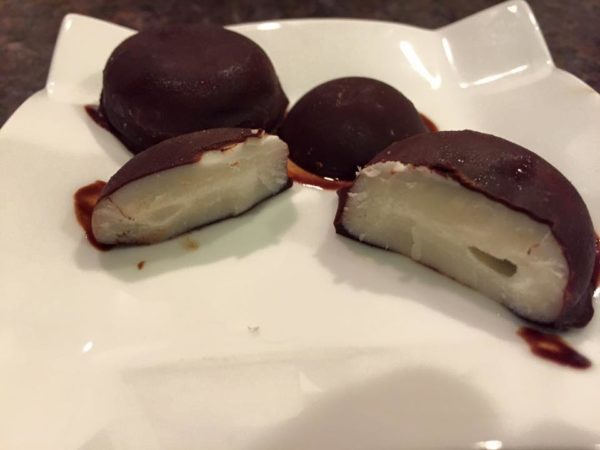

So mark your calendar for October 12th and dig out your tattered childhood Teddy to join you for the day. Invite others to take out their Teddies, too!
Adding some FUN into your life can have a huge impact on your health and mood. Enjoying things that are FUN for you is a great way to reduce everyday stress. It can move you – literally – and can help you connect with friends, family, pets, and nature, as well as perhaps tap into an “inner you” that you had long ago lost.
Research has shown that there are many positive health effects from having FUN . Are you incorporating enough FUN in your life?
Take this short FUN assessment and see how well you score!
How does the brain process functions like FUN?
In a nutshell, the amygdala – which is located deep inside the brain in the hippocampus is like an extraordinarily sensitive filter or switching station. It either turns information downward towards the lower reactive brain where we have our ‘fight, flight or freeze’ responses OR it allows that information into the higher levels of the brain – the prefrontal cortex.
It is only here, in this prefrontal cortex, that information can be processed – mentally manipulated and/or moved into the highest cognitive and emotional control centers of the brain that we refer to as executive function.
The amygdala routes information based on our emotional state.
If you are feeling negative about an experience – and negative includes anxiety, fear, even boredom – the amygdala uses up the brain’s available nutrients and oxygen, which then becomes the fight, flight, or freeze reaction, but it’s still that physiological reaction.
If, however, the brain is convinced that an experience is pleasurable, the amygdala releases a little drop of dopamine that tells the whole system that life is worth living. The information is allowed through the gates, to be directed to the prefrontal cortex.
Dopamine is a neurotransmitter – it’s the feel good one. So how does dopamine affect fun?
Basically, when new information is coming into the brain, messages about this new info travel from neuron to neuron as a small electrical current. Like anything electrical, wiring is needed to carry those currents. Synapses – those little gaps between neurons – have no wiring! Chemical neurotransmitters like dopamine carry the message across the synapse. Now, when an experience is pleasurable, the amygdala releases extra dopamine! Having a burst of dopamine is like hitting the SAVE button in a word document – you aren’t going to lose your information! If dopamine is present during a fun experience, we remember that information. If there is no dopamine present, the info just isn’t going to stick.
What are FUN things that you can do? Do YOU do some of these every day?
 Ideas of things that can get you to joyfully MOVE:
Ideas of things that can get you to joyfully MOVE:
- Walk the dog. Bring along a friend for extra FUN points; bring a Frisbee even better!
- Dance in your kitchen listening to music from your youth. Seeing for yourself that you still have the moves is worth extra FUN points!
- Play with your grandchild in the park – bonus FUN points if you are barefoot on the grass!
Ways to help you Relax:
- Cooking! Healthy foods, of course. Try experimenting with healthy spices and herbs.
- Work in the garden – extra FUN points for each hummingbird sighting!
- Get absorbed in that 5,000 piece puzzle – while sipping on your favorite herbal tea
Do anything that can get you to CONNECT:
- Make a pact to yourself to re-connect LIVE with someone on the phone each week
- When going out to dinner with friends, have everyone put their cell phone in the middle of the table. The first person to pick up their phone pays the bill. FUN!
- Turn off the TV and play some old-fashioned games with family, such as charades or card-games. Games involving movement and no electronics get extra FUN points!
 Ways that can get you to Appreciate your life:
Ways that can get you to Appreciate your life:
- Dust off your old camera and take a few shots of the beauty all around you that you might not otherwise truly see each day!
- Write a love note to your spouse or significant other. Tuck something thoughtful in your child’s backpack?
- Start a gratitude journal and commit to writing in it each day. You will be amazed at how many positive things we all take for granted each day.
Find ways to DE-Stress:
- Try a new essential oil – diffuse it into your home and see what memories it evokes.
- Play with a pet; it is therapeutic and will lower your cortisol and send your oxytocin – the love and bonding hormone – into overdrive.
- Have a hobby you “never have time for”? Well, find time for it! Paint, sculpt, play the piano, and write poetry. Encourage others in your life to tap into their “never have time for” things as well.
What are the positive health effects of having FUN?
There are many physical and psychological benefits when you give yourself permission to play without having any other goal than to enjoy yourself!
Improved Mental Health
The number one benefit in my view is mental health. When you are playing or just having FUN, your body is producing many feel-good hormones that are good for your mood as well as your physiology. Endorphins, dopamine, serotonin, and oxytocin are all hormones that promote a sense of well-being while countering feelings of stress and even depression.
As many of you are aware, I am a Certified HeartMath™ Coach. The key focus for HeartMath is exploring how our emotions affect our physiology. Research has shown that positive emotions reduce stress level, along with the negative physiological effects , improve brain function, and can even temporarily relieve pain.
Healthier Aging
George Bernard Shaw once said, “We don’t stop playing because we grow old; we grow old because we stop playing.”
Incorporating FUN into your life reduces the physiological impacts of stress. It reduces that stress hormone, cortisol, and balances out your other hormones in a healthy way as well. You will likely have less inflammation as well as greater immune health. Chronic stress leads to adrenal fatigue, and we know from the research that 80-90% of all diseases are stress related.
Improved Brain Function
Playing games, engaging in social interaction, and pursuing hobbies and passions can all challenge the brain, improving your brain function. Stimulating your imagination can help with problem solving skills. More and more companies have recognized the link between having fun and increased productivity. FUN activities encourage creativity, and improve morale and team-building. Having some FUN at work also results in a decrease in staff turnover and absences.
Now, back to the positive benefits of remembering your old Teddy…
More and more research is showing that experiencing feelings of nostalgia can be positive for 
Nostalgia is that moment when an old memory crosses your mind. Maybe you see a photo that reminds you of your family’s long-time cabin in the mountains. You hear a song that reminds you of when you were young, or of your wedding day. You see something that reminds you of your life growing up, perhaps some holiday tradition your family used to have.
Researchers used to think that being nostalgic was a sign of depression! They thought it meant someone was looking back and dwelling in the past, or comparing their past with their future in a negative way. But more recent research is showing that experiencing nostalgia more often results in people feeling more cheerful or connected.
Nostalgia has been found to:
- Ease anxiety
- Increase generosity and tolerance toward others
- Increase intimacy, especially when spouses share memories that reconnects them
- Reconnect people with their roots
- Counteract feelings of loneliness or depression
- Enhance feelings of physical warmth! Researchers found people are more likely to experience nostalgia in colder rooms than warmer rooms. People that experience feelings of nostalgia reportedly made people feel warmer!
Yes, for some people nostalgia can be a negative. If you compare the good old days with your current struggles, or had a particularly negative past, experiencing nostalgic moments can be negative. For most people, however, that is not the case.
Go grab your Teddy and savor all of the memories of your youth. Even take your Teddy to work. HAVE FUN! Don’t forget that it is always better for your health, mood, and relationships to cultivate experiences versus things in your life. FUN experiences!
To learn more about how fun and enjoyment can enhance your life, reduce your stress levels, and keep your blood sugar levels in balance, check out the B4 Be Gone blood sugar balancing system. It will help you find your sweet spot!
(Teddy Bear photo courtesy of daysoftheyear.com)
Share this:

Are you feeling stuck?
Do you feel as if something is missing from your practice that's keeping you from delivering breakthrough outcomes for your clients?.
Recent Posts
Our Programs
Nutritional Endocrinology Practitioner Training (NEPT)
The Mastery and Certification tier is our flagship program and provides everything you need to feel confident as a practitioner who knows how to get results that lead to healthy and happy clients.
Functional Assessment Mastery
Explore the relationships between the most important hormones and their relationship with nutrition.
Functional Nutrition Mastery
Learn how to support your clients to eat and supplement in a way that reduces and eliminates chronic symptoms.
Medical Disclaimer: The information on this website is not intended to replace a one-on-one relationship with a qualified health care professional and is not intended as medical advice. It is intended as a sharing of knowledge and information from the research and experience of Dr. Ritamarie Loscalzo, drritamarie.com, and the experts who have contributed. We encourage you to make your own health care decisions based upon your research and in partnership with a qualified health care professional.
Disclosure: Sometimes (but not always), when I share resources in my programs, newsletter, and on my website, I'm using an affiliate link, which means I do make money if you buy. My credibility is extremely important to me; therefore, I only endorse the products, services, and people I believe in. DrRitamarie.com is independently owned and the opinions expressed here are my own.
Click here to see our Privacy Policy.


 Ideas of things that can get you to joyfully MOVE:
Ideas of things that can get you to joyfully MOVE: Ways that can get you to Appreciate your life:
Ways that can get you to Appreciate your life:








